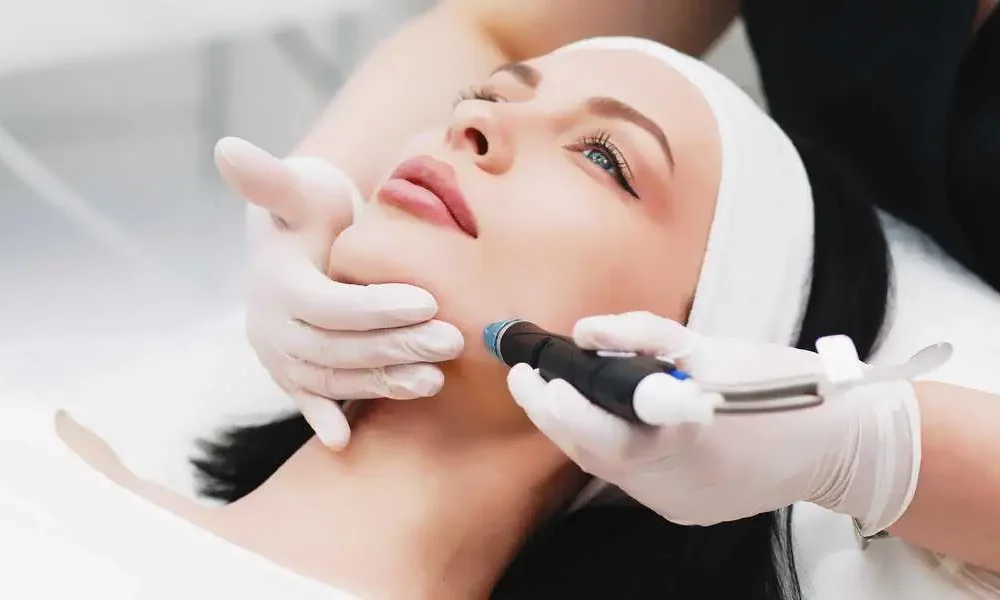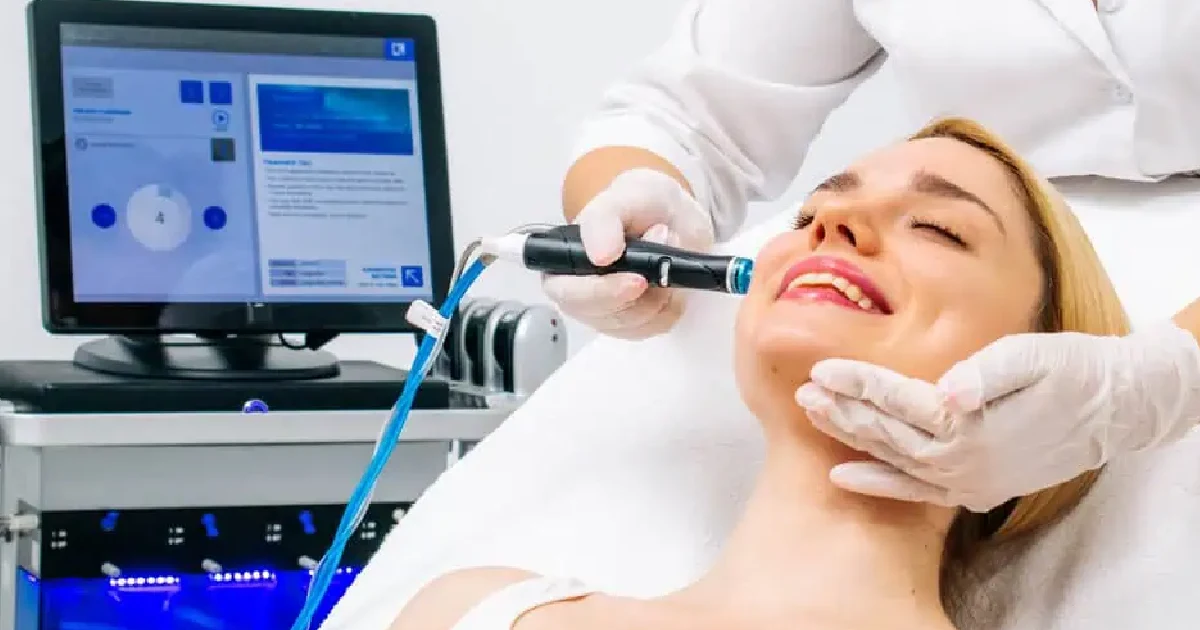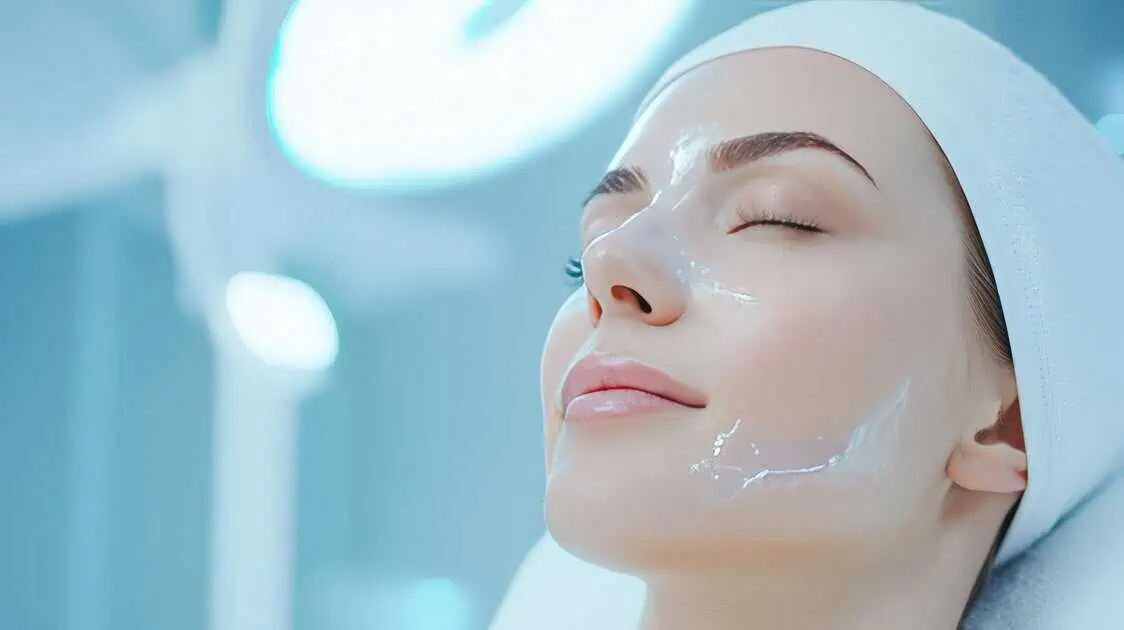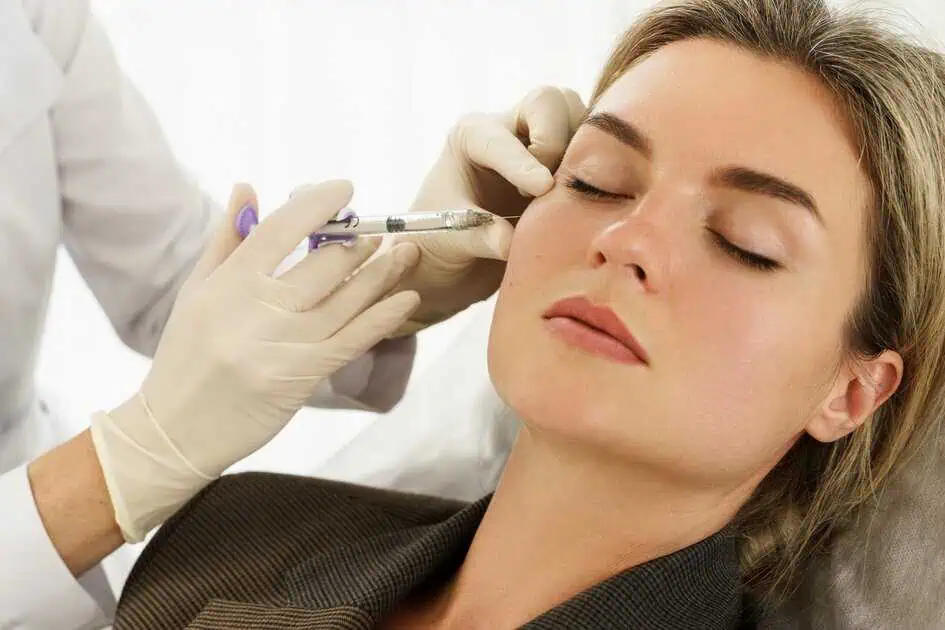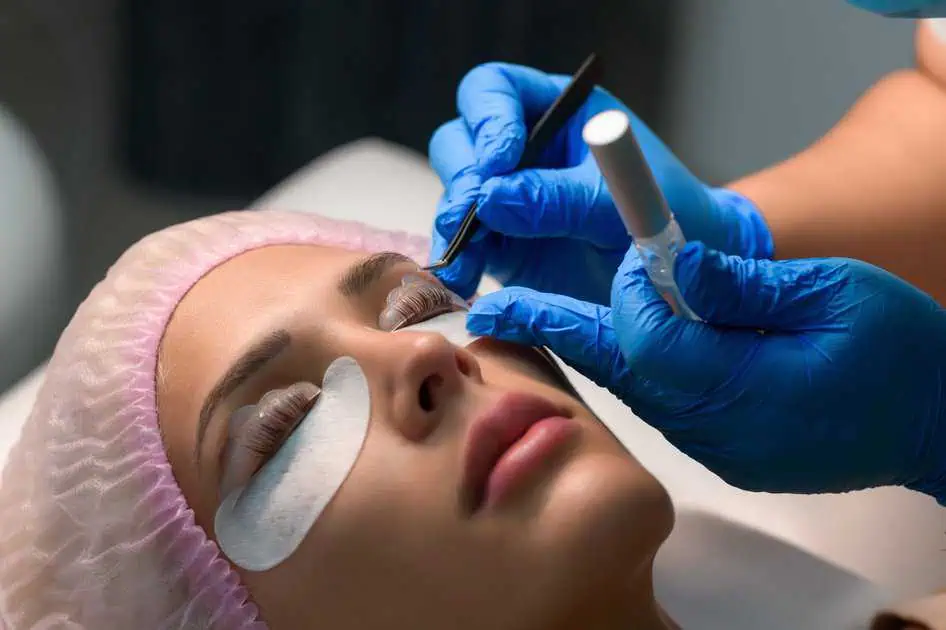HydraFacial is a straightforward, non-invasive skincare treatment offering a deep cleanse, exfoliation, and hydration. Unlike traditional facials, which can be rough or require downtime, HydraFacial delivers consistent results with minimal fuss. It utilizes patented technology to cleanse, extract, and hydrate skin. While it’s suitable for nearly all skin types and concerns, knowing the precautions is necessary to ensure it’s right for you and to maximize its benefits.
HydraFacial Overview
HydraFacial is a multi-step facial treatment performed with a specialized device. This device uses a unique spiral suction tip that dislodges impurities and delivers serums deep into the skin’s pores. The process is distinctly segmented into three main stages: cleansing and exfoliation, extraction, and hydration.
The initial phase of a HydraFacial involves gentle exfoliation, which removes dead skin cells from the surface, revealing a fresher, more vibrant layer beneath. This step is necessary as it prepares the skin for the subsequent phases, ensuring it can fully absorb the benefits of the treatment.
Following exfoliation, the device performs painless extractions using vortex suction technology. This efficiently clears the pores of debris without the discomfort and potential skin damage that manual extractions can cause. This phase is particularly beneficial for individuals prone to acne or those with congested skin, as it helps reduce breakouts by removing potential blockages.
The final step infuses the skin with intensive moisturizing serums. These serums are tailored to the client’s specific skin concerns and deeply penetrate the skin for maximum effectiveness. The hydration phase not only replenishes the skin’s moisture barrier but also delivers a range of antioxidants, peptides, and hyaluronic acid, which enhance skin tone, texture, and overall appearance.
General Precautions for HydraFacial
These precautions help in avoiding potential side effects and in achieving the best possible outcomes:
- Skin Sensitivity: If you have susceptible skin or are prone to allergic reactions, discuss this with your skincare professional beforehand. A patch test may be recommended to ensure you don’t react adversely to any of the serums used during the treatment.
- Recent Skin Treatments: Inform your provider about any contemporary skin treatments or procedures you’ve undergone, such as chemical peels, laser treatments, or microdermabrasion. It’s usually advised to wait a certain period after these treatments before having a HydraFacial to prevent overstimulating the skin.
- Active Skin Infections or Conditions: Individuals with active skin infections, rashes, or conditions like eczema or psoriasis in the area to be treated should postpone the treatment until these issues have been resolved. The HydraFacial process can exacerbate these conditions.
- Pregnancy and Nursing: While HydraFacial is generally considered safe, some peels or serums may not be recommended for pregnant or nursing mothers. Always consult your healthcare provider and the skin care professional to tailor the treatment to your specific situation.
- Sun Exposure: Minimize direct sun exposure, and do not use tanning beds for at least a week before and after the treatment. Sun-damaged skin can be more sensitive, and the HydraFacial treatment might irritate it further.
- Use of Accutane: If you’re taking or have recently stopped taking Accutane or similar medications, it’s essential to let your skincare professional know. These medications can significantly increase skin sensitivity, and a waiting period may be required before undergoing a HydraFacial.
- Expectations: HydraFacial can provide remarkable results for many, but you still need to set realistic expectations and discuss these with your provider. Some skin concerns may require a series of treatments for optimal results or may respond better to alternative therapies.
Specific Precautions to Take
In addition to the general precautions associated with HydraFacial treatments, there are specific precautions you should take to ensure the safety and effectiveness of the procedure. These focused measures aim to mitigate risks and enhance the positive outcomes of your HydraFacial experience:
- Skincare Product Use: Before your HydraFacial, it’s advisable to avoid using any products containing retinol, alpha hydroxy acids (AHAs), beta hydroxy acids (BHAs), or any other potentially irritating ingredients for at least 48 hours. These components can sensitize the skin, increasing the likelihood of irritation from the treatment.
- Makeup: Come to your appointment with a clean face, free of makeup. This ensures that the treatment can be started immediately and that the HydraFacial device can work effectively without any barriers.
- Avoiding Excessive Heat: For 24 hours before and after your treatment, steer clear of high-heat environments such as saunas, steam rooms, and hot yoga classes. Excessive heat can exacerbate redness or swelling post-treatment.
- Physical Exfoliation: Refrain from physical exfoliation methods, including scrubs or brushes, for at least a week before your HydraFacial. Over-exfoliating can lead to skin barrier damage, making the skin more susceptible to irritation from the treatment.
- Hair Removal: Avoid any form of hair removal, such as waxing, threading, or using depilatory creams, in the treatment area for at least 48 hours before your HydraFacial. These methods can irritate the skin, increasing sensitivity to the treatment.
- Outdoor Activities: Limit direct sun exposure and outdoor activities that may lead to sunburn for a few days before and after your treatment. Sunburned skin is vulnerable and could react poorly to the HydraFacial process.
- Medication and Supplements: Inform your skin care professional about any medications or supplements you are taking, as some may affect your skin’s sensitivity or healing capability. For example, blood thinners or certain supplements may increase the risk of bruising.
Who Should Avoid HydraFacial
For those considering a HydraFacial, it’s essential to recognize that while it’s a beneficial treatment for many, it’s not suitable for everyone. Here are the fundamental groups of individuals who should avoid HydraFacial or at least consult with a medical professional before proceeding:
- Individuals with Active Skin Conditions: Those with active rashes, sunburn, or rosacea flare-ups should avoid the treatment. The procedure could worsen these conditions.
- People with Severe Acne: If you have severe or cystic acne, the HydraFacial might irritate your skin further. Alternative treatments might be more appropriate.
- Pregnant or Nursing Mothers: The safety of all HydraFacial serums during pregnancy or breastfeeding hasn’t been fully established. Consult with your healthcare provider first.
- Those with a History of Allergic Reactions: If you’re allergic to any ingredients in the HydraFacial serums, avoid the treatment to prevent adverse reactions.
- Individuals on Certain Medications: Medications like Accutane, which increase skin sensitivity, may necessitate waiting after treatment completion before undergoing a HydraFacial.
- People with Certain Skin Diseases: Conditions such as eczema, psoriasis, or herpes simplex could be exacerbated by a HydraFacial. Professional guidance is advised.
Takeaway
Are you prepared to discover the key to glowing, youthful-looking skin with little recovery time? COMO Aesthetics offers our renowned HydraFacial treatments as a way to help you achieve beautiful skin. Our team provides customized skincare solutions that address your particular requirements and guarantee the best possible outcomes in a soothing setting. Skin issues shouldn’t be a barrier to you anymore. Book an appointment for a HydraFacial with COMO Aesthetics to start your journey to the bright, youthful skin you deserve.

